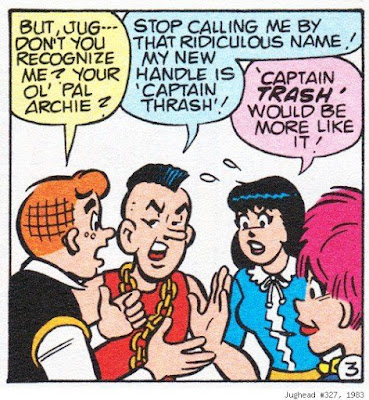PUT A BIRD ON IT, OR "HUNGER MAKES ME A MODERN GIRL" BY CARRIE BROWNSTEIN
A lot of ‘90s indie bands cultivated a seriousness which
could come across as dour and anti-fun. Of course, it’s hard to be wacky when you’re
trying to wring out your emotions in a song and playing benefits for Planned
Parenthood or the local homeless shelter. That’s why it was such a shock to see
Sleater-Kinney’s Carrie Brownstein being funny in Portlandia.
And she is funny! Brownstein has a dry humor that runs
through her memoir “Hunger Makes Me a Modern Girl” and gives her tales of
awkwardness and shame enough laughs to make the book interesting to people who wouldn’t
know the difference between Bikini Kill and the Spice Girls.
Brownstein grew up in the Seattle suburbs as a shyer, more
anxiety-ridden Lisa Simpson, more likely to hang out with her friends’ moms
than her actual friends. There’s a distance in her family, probably due to a closeted
dad and an anorexic mom, and Brownstein fills that with music fandom. Painfully
shy, yet seeking validation through performance, Brownstein describes torturing
parents and friends with renditions of popular songs, or interrupting an
elementary school mock trial with a surprise “My son is innocent. I am the
killer!” faux-confession.
A fan of punk and new wave from a young age, Brownstein is
inspired by the Riot Grrrl movement and forms a couple bands, her first band
being “… like Fleetwood Mac without the sex or drugs or hair or songs” then
starts Sleater-Kinney with her then-girlfriend. From there it’s touring,
breakups, anxiety, battles over selling out, inter-band fights, mainstream
recognition, and finding herself alone after the breakup of the band, wondering
exactly who she is off-stage.
Brownstein has a wry style that makes “Hunger” a breeze to
read and, unlike many music bios, is able to reveal her character (as much as
she wants to reveal. There’s a lot of relationship details that are just sort
of eluded to). She’s got a witty
self-deprecating humor, describing her “business casual” stagewear in
Sleater-Kinney, her and Jack White getting turned away from a post-show college
party the night Sleater-Kinney was lauded by Time as “the best band in America,”
and her attempts to move on stage as “In the end, all I could manage was the
kind of shoulder dance moms do when they make shrimp scampi in the kitchen
while drinking white wine and listening to Bruce Hornsby.”
 |
| Cheers to scampi |
There are great passages about the constant uncleanliness of
budget touring, the importance of totems to signify your allegiance to your
subculture, as well as an embarrassing section of mainstream press coverage
ranging from “look at the cute girls playing their big guitars” to, “Don’t
worry, they’re not man-haters.” And the funny thing is, these were trying to be
complimentary.
“Hunger” ends right before Portlandia and after a
Sleater-Kinney reunion. While still an anxious, nervous mess, Brownstein is
able to find transcendence in the music and friendship, and it’s the best
possible ending to her story.
1/10. And that’s being generous. There’s a couple beers here
and there. Possibly some ecstasy, I can’t recall. And Brownstein’s awkward tour
hookups don’t make it beyond embarrassed kissing. If you’re looking for “Hammer
of the Gods” or “The Dirt” style sleaze, you’re gonna be very, very
disappointed.
Opens in Media res?
Oh yeah. “Hunger” opens on a 2006 European tour where Brownstein
is constantly thinking of breaking her fingers so she can have an excuse to
stop the band before they have to play.
Percentage of Music in the Bio
A good 60 percent. Nowhere
near as technical as the Booker T. bio, more about the effects of music.
There’s a great opening chapter on fandom closing with “This is what it is to
be a fan: curious, open, desiring for connection, to feel like art has chosen
you, claimed you as its witness,” and another section on Brownstein being blown
away by Bikini Kill in her late teens “ …Hearing Bikini Kill was like having
someone illuminate my world for the first time. Here was a narrative that I
could place myself inside, that I could share with other people to help explain
how I felt, especially at a time when I was a shy and fairly inarticulate
teen.”
Buy, Borrow from the Library, or Pass
I’m breaking my tightwad streak and
recommending a buy. Give it to your weird, awkward niece after finishing it.

Comments
Post a Comment